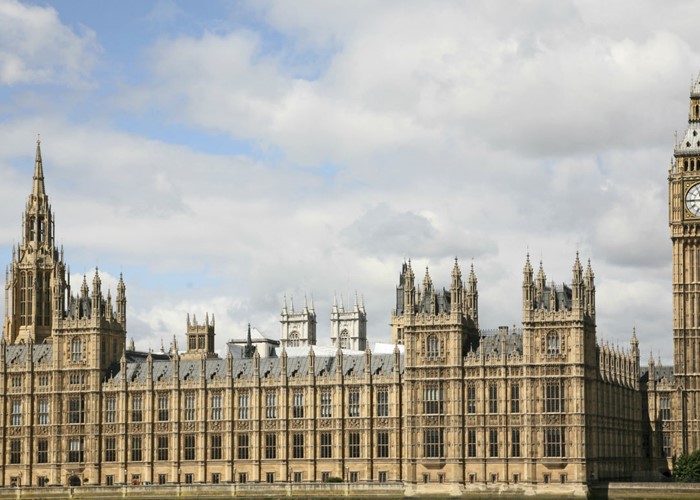How David Cameron secretly keeps tabs on your money

Find out how David Cameron plans to secretly check up on you if you claim benefits.
Another year, another politician promising a clampdown on benefit fraud. This time it’s new prime minister David Cameron, who claims the government will be “uncompromising”, and plans to call in private credit reference agencies to track the offenders down.
MPs announce a fresh war on benefit fraudsters about as often as they file a false expenses claim, so it is hard to know how seriously to take the latest assault, or gauge its chances of success.
Cameron claims that fraud costs the taxpayer some £1.5 billion a year, equivalent to “200 secondary schools or over 150,000 nurses”, so this is a battle worth fighting. And considering that three-quarters of those caught defrauding the system escape prosecution, maybe we do need to be more uncompromising. Take no prisoners, and all that. Or rather, take prisoners.
I don’t have a problem with that.
What a swindle!
But I bet that plenty of you, while broadly acknowledging that benefit fraud is a bad thing, will feel pretty queasy by the whole exercise, for FIVE reasons.
1. MPs have been fiddling their expenses as assiduously as any dole cheat, and with less excuse, because they are our elected representatives, earn a decent income, and own duck ponds. You might also ask how many MPs have been prosecuted. Certainly less than one in four.
2. It is pretty rich going after benefit fraudster small fry when the big villains of recent years, greedy bankers, are trousering bonuses and slapping down business loan applicants with guiltless abandon.
3. The money lost to fraud is dwarfed by the billions lost every year to tax evasion. Once again, it’s the rich what gets the pleasure (usually in some offshore tax haven) and the poor what gets the blame.
4. David Cameron and George Osborne are posh.
5. The Daily Mail will like it.
These might be all fair points, but it doesn’t mean we should ignore benefit fraud. It simply means we should be equally uncompromising with scrounging MPs, wealthy tax dodgers, evil bankers, posh people and Daily Mail hate campaigns against “benefits scroungers”.
Tax dodgers do it better
If I had to tackle just one of these five tasks, it would have to be tax evasion, and for sound fiscal reasons. The £1.5 billion lost to fraud annually (0.8% of total benefit spending) is dwarfed by the £30 billion lost to tax evasion (some put the figure as high as £70 billion). This means we should come down on tax evasion at least 20 times harder.
The differential is hardly surprising, given that benefits fraud is a cottage industry, while tax evasion - oops, sorry, avoidance - is a global enterprise employing hordes of highly paid tax accountants and lawyers. Tax evaders have back-up. Expensive back-up. They also have ideological supporters, the anti-government libertarian brigade who believe all tax is theft.
This makes them harder to nail than benefits scroungers, which may explain why Cameron is targeting the £1.5 billion loss rather than the £30 billion one.
It’s a class thing
Here’s a funny thing about benefit fraud. Honest benefit claimants and the working classes hate it. I remember my council house dwelling grandmother’s fury at her incapacity benefit-claiming neighbour, who was fit enough to speed past her doorstep on his motorbike but whose back “popped” every time he walked into the Job Centre.
People who depend on benefits loathe those who fiddle the system. They hate the unfairness of it, and feel it reflects badly on them. They hate it even more than tax evasion, because the benefits fraudsters live next door, while wealthy tax evaders are unknown figures from the posh side of town (or Grand Cayman).
For middle-class liberals, the arguments work in reverse.
Blind data
So by all means tackle benefit fraud. And as far as I am concerned, use every weapon at your disposal, including credit reference agencies. Fellow lovemoney.com contributor Tony Levene has penned a diligent piece for The Guardian condemning Government plans to use credit agencies as bounty hunters, in part because their data is often inaccurate.
Related blog post
- Tony Levene writes:
The oldest scam in the book
Tony Levene outlines his latest experience with one of the longest lasting scams - the Nigerian 419 scam.
Read this post
The problem is, all large databases contain inaccuracies, even (especially) government ones. If that meant we couldn’t use them to tackle fraud and other crimes, all crime would go untackled.
So I don’t fully agree with Tony on that one. How about you?
They’re taking a liberty
The bigger worry is that using unaccountable credit agencies to tackle benefits fraud will trample all over our civil liberties. Are government snoops secretly keeping tabs on our money? Is it fair to hire private companies to do it? Or is the government right to defend the taxpayer using every weapon at its disposal?
I think it does have that right, up to a point. But if we are using weapons-grade fraud investigation techniques, shouldn’t we be firing most of our ammunition at tax evaders instead?
Enough of me. What do you think? Share your views using the comments box below!
More: Read Tony Levene’s blog: The Scam Magnet | Check your credit report for free
Comments
Be the first to comment
Do you want to comment on this article? You need to be signed in for this feature